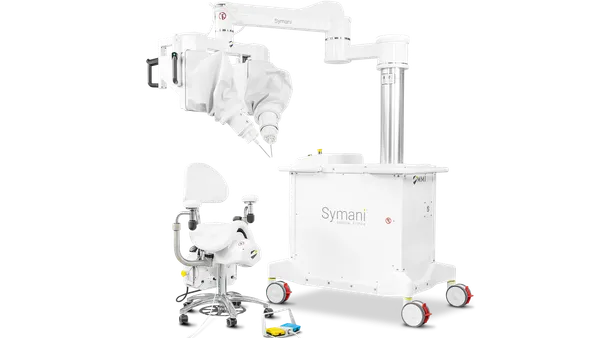Dive Brief:
-
Tandem Diabetes Care has temporarily suspended use of the Control-IQ software feature in its International Diabetes Closed Loop (IDCL) clinical trial.
-
The suspension follows the discovery of a software problem that could affect automated insulin delivery under certain circumstances. Tandem said it plans to patch the software issue by the end of the month and stay on track to bring Control-IQ to market in the second half of the year.
-
Tandem's CEO sought to quell investor jitters over safety that pushed the stock down 8%.
Dive Insight:
Control-IQ is central to Tandem’s pitch for the automated insulin delivery system market. Medtronic got to the market first with its MiniMed 670G but Tandem thinks it can leapfrog the medtech giant by offering novel features, such as automatic basal insulin adjustments and correction bolusing for high blood sugar. The IDCL is designed to generate the data Tandem needs to win FDA approval.
However, the global trial has hit a snag. Under specific conditions, Control-IQ and the accompanying t:slim X2 insulin pump mishandle continuous glucose monitoring data. The fault affects the prediction of blood glucose values and automated insulin delivery.
No adverse events were reported as a result of the problem and Tandem thinks the fault is rare. In theory though, the problem could raise the risk of hypoglycemia. Faced with that threat to subject safety, Tandem has suspended use of the Control-IQ software feature in the study while it works on a patch. Tandem expects to remotely update the software by the end of the month.
If Tandem hits that timeline, the trial will only be delayed by weeks and it would likely still be able to bring Control-IQ to market later this year. That led Baird analyst Jeff Johnson to call the event a "small hiccup" that did not justify the up to 8% drop in Tandem’s stock that it precipitated.
Tandem CEO John Sheridan sought to frame the temporary suspension in a positive light.
"A primary reason for a larger pivotal clinical trial is to identify and resolve infrequent anomalies like this that may not appear in smaller studies. Being able to address this now helps us to offer a more robust product for our customers at launch," Sheridan said in a statement.
The flipside of that argument is that the "infrequent" anomaly was detected in a 168-patient study. If Control-IQ is approved, it will be used in many more people, raising the possibility that more rare faults will be identified.
Correction: In a previous version of this article, Control-IQ was said to enable "correction bolusing for high blood pressure." The technology enables correction bolusing for high blood sugar.











